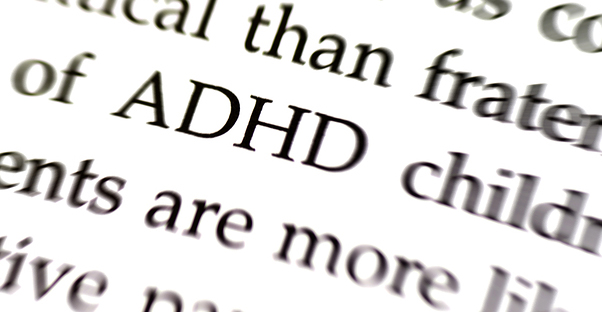

It receives information from other brain areas and relays the messages back and forth from the motor center. Basal ganglia: The basal ganglia is a group of structures associated with processing information.One 2017 study demonstrated that people with ADHD have dysfunction in the limbic system. Examples include having a hard time being quiet or controlling emotions. Differences in this area are associated with difficulties in self-regulating. Limbic system: Deep within the brain, the limbic system is responsible for emotional regulation.Brain structure and function differences in this region are associated with difficulties in developing and displaying executive functioning skills. Executive functioning is associated with organizing, planning, and maintaining attention. Prefrontal cortex and frontal cortex: Located at the front of the brain, the prefrontal and frontal cortex are responsible for high-level executive functioning.But perhaps this is all moot because nobody ever displays the exact same symptom profile of any disorder to another person, because the disorder is always going to interact with our personality. I could quite feasibly stay in the same chair/bed for a whole day, I wouldn't be in one position the whole time but remaining in the one place yes. I never purposefully engage in risky behaviour (as specified in ICD, I think), if I do take risks it's a failure of attention rather than an adrenaline seeking thing, I actually don't like that kind of adrenaline, I find it unpleasant.

I don't hit most of the DSM symptoms for hyperactive - only fidgeting, talking, interrupting. I eat better, too, which helps of course.

I seem to get sleepy at the appropriate time and don't experience the same huge swooping energy hit by trying to concentrate. My energy levels are much better when I'm medicated. I have huge issues waking up in the morning as well. (Nicotine being out because I quit smoking, exercise usually being impossible to convince myself of at that point, conversation being dependent on other people). If I'm trying to push myself to concentrate and the conditions aren't exactly right I feel this huge sleepiness come over me, the only ways I've found to get alert again are nicotine, exercise, and conversation. And sometimes, especially if I'm tired and trying to focus on something when I really don't want to, it really does become incredibly hard to hold on to a single thought track - it's like trying to remember a dream, the more you push it, the more it slips away. I can't just grab one to keep it totally in focus, because they are too slippery. Also there is a little waterfall in the pond and sometimes the fish escape off the waterfall when I'm not paying attention. I can choose to watch one of them for a while, but I'm aware that the others are there, and sometimes I lose track of which one I was watching to begin with. It's like all my thoughts are fish and they are swimming in a pond. I find it incredibly difficult to hold a thought in view. The brain fog thing for me seems to come about as a result of having too many thoughts, or thoughts running too fast. I know where I have issues with impulse control but they're mainly things that affect me and nobody else, or it's related to being lazy rather than sticking to a plan, choosing short term over long term, that kind of thing.Įdit - if I can elaborate. But I absolutely don't fit the SCT mould either and I have all of the executive function and impulse control problems as described with ADHD, which are supposed to not be there with SCT, it's just that my impulses aren't particularly destructive, so they don't stand out. I'm a fidget but it doesn't feel restless if that makes sense. I don't know, it's difficult for me because I definitely identify with the low energy and thinking through a fog symptoms myself and I don't have a restless, too much energy problem.


 0 kommentar(er)
0 kommentar(er)
